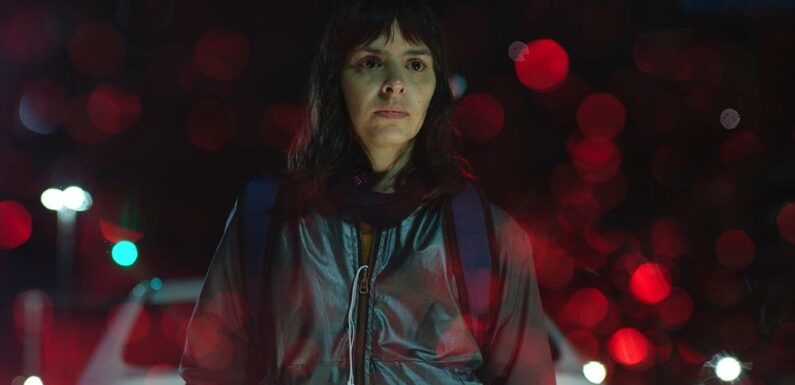
Brazilian film editor, screenwriter and director Bruno Carboni tells a merged tale of human disconnection in “The Accident” (“O Acidente”), sharing an exclusive first-look trailer with Variety as the film begins to advance on the festival circuit.
Completed within the framework of the 2018 Torino Film Script Lab, Carboni’s reflective first feature has debuted in competition alongside seven other projects, including Eduardo Cassanova’s “La Piedad” and Carlos Lechuga’s “Vicenta B” at the 32nd Annual Cine Ceará in Fortaleza, Brazil, which wraps today. It is also screening at the Festival do Rio and has just been selected for the Tallinn Black Nights First Feature Competition.
Shot in his hometown of Porto Alegre and co-written by Marcela Ilhar Bordin, the film analyzes the microscopic ways trauma unfolds under the surface and calls into question the hopeless nature of an ego-fueled society that espouses distrust rather than championing grace and communication.
In “The Accident,” Joana (Carol Martins) is the victim of a hit-and-run after antagonizing an aggressive driver who cut her off in traffic. On the surface, she’s visibly shaken but manages to walk away unscathed. Intending to shrug it off alongside her partner Cecília (Carina Sehn), a viral video turns up online, forcing her to process the event. Reluctantly the pair enter the lives of culprit Elaine (Gabriela Greco), her estranged husband Cléber (Marcello Crawshaw) and son Maicon (Luis Felipe Xavier), an introverted budding filmmaker.
“The inspiration for the film emerged from a video that I came across that showed a cyclist being carried on the hood of a car driven by a woman accompanied by her family. That video had a more absurd tone, not properly violent. The cyclist in the images wasn’t hurt, but in that odd situation you could see the feeling of enmity, a political polarization that was dividing Brazilian society, making any attempt at dialogue impossible,” Carboni relayed in a statement.
“Such a phenomenon isn’t exclusive to Brazil. If it’s perceptible throughout the globe, a current attitude that preaches distrust of the ‘other’ and the desire to protect one’s own territory, properties and values…even though the video was less brutal than many of the situations we see every day on the news, that small incident still seemed to condense the social complexity that was intriguing me,” he added.
After his parents suffered an accident, Carboni’s perspective on the video shifted to include the intricacies of such sudden and intimate traumas. In “The Accident,” this plays out as characters become increasingly transfixed on one another and the instantaneous, marked and often unable to fully grasp the gravity of the moment at hand.

“It’s only a true accident when we can’t anticipate it. Something that we can’t see, coming into our field of vision, we can’t predict its effects on us. An accident always changes something and it’s the constant specter of this possibility that’s frightening. Where I once saw a simple collision generated by divergences, I was now seeing a life-altering encounter that would certainly move something in its participants,” Carboni stated.
Produced by Paola Wink and Jessica Luz and their Brazil-based production companies Vulcana Cinema (“Rifle”) and Tokyo Filmes (“Quarto De Espera”), the film’s trailer opens as Joana desperately clings to the hood of a moving vehicle, her face clenched with fear; the scene then cuts to her bicycle, mangled and trapped under the front bumper, the tires of the car spinning through soaked city streets.
As the car comes to a jarring halt, Joana’s forced to the slick pavement below as we’re introduced to Maicon, holding his cell phone up to record the startling series of events, his mother behind the wheel.
With Joanna suffering only minor injuries, the film takes a stunning turn inward as each character examines their role in the accident and the profound depths of the other. They become increasingly entangled, growing closer, then apart, navigating the minutiae of daily life with a newfound perspective.
The teaser closes as Maicon traces his fingers along the cracks in a cell phone screen and solemnly exclaims that nothing is ever as it seems and the eyes can often fool you. Observant and deeply relevant musings reverberate, provoking a closer following of the narrative to ensure observation of every poignant detail.
Pensive despair dominates the screen. Drab, rain-soaked scenery surrounds the protagonist at every turn. Her decisions become increasingly hard to manage.
“I desire to generate in the spectator the same ambiguous feeling that I find in Joana’s character, Carboni said. “Someone who fears a confrontation that can endanger her stability, but who, at the same time, feels a certain desire for the type of clash that carries her to unknown paths.”
Read More About:
Source: Read Full Article